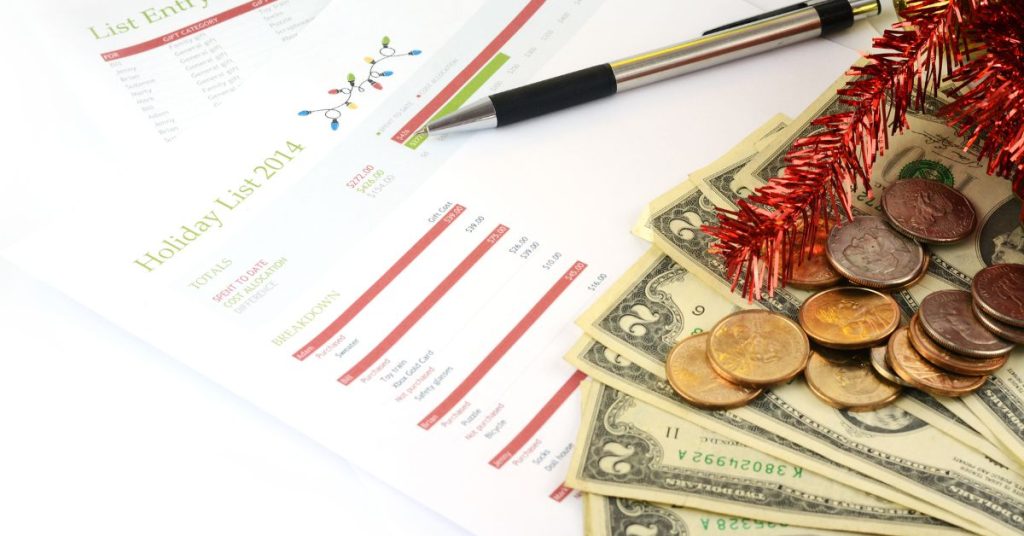Getting married is one of the most exciting and significant times in your life. On the other hand, planning a wedding can be extremely stressful at times. Don’t feel as if you’re going through the wedding planning process alone. Involve your significant other; their advice is bound to be invaluable, and it makes wedding planning that much more enjoyable when you can make decisions together, even if they’re only involved in selected elements. Working for a common objective not only strengthens your relationship, but also helps you grow as a couple with each difficulty you face together. While many couples hire a professional to help manage their wedding plans, there are several reasons why they may choose to handle the majority of the responsibilities themselves.
Maybe you’re on a tight wedding planning budget, or maybe you just love all of the DIY possibilities—in any case, it’s a lot of extra details, but you can plan your dream wedding on your own. Focus on one task at a time to avoid becoming overwhelmed by the wedding planning process. Having your priorities straight will guide the rest of the process, making it easier to decide where you’ll compromise. If you’re short on time, delegate some of these responsibilities to family members and friends, who will almost certainly be happy to assist you. You must make use of technology and resources during the planning phase. Enroll in online wedding courses to help you visualize your ideal wedding.

Everyone will be asking for your wedding date as soon as you get engaged. However, you won’t be able to set an exact wedding date until you’ve made other significant decisions, such as setting a budget, finding inspiration, starting your guest list, and selecting (and booking) your venue. Trying to figure out how to plan a wedding can be intimidating at first, especially if you’re doing so amid the COVID pandemic. Many things have changed around our daily lives. So, first and foremost, figure out a time frame that works for you. The average engagement lasts 15 months, but consider any big holidays or family events you’d like to avoid clashing with, what season you prefer, and how much time you expect to need to organize ahead of time. You and your fiancé have most likely already talked about the types of weddings you prefer. You went to a friend’s formal wedding together and both agreed it wasn’t your style. Don’t let all of the wedding inspiration out there overwhelm you. Now is the time to think about how you want your wedding to turn out.
Is it a small, simple wedding or a big, lavish affair? Maybe you’d want to include vintage aspects in your attire and décor. Perhaps you want a traditional wedding with a classic theme. However, some tasks must be completed before the planning process can begin. During this time, couples should discuss their overall vision for their wedding as well as their priorities. Before approaching any vendors, you should also establish a firm budget and select a wedding date. When you’re dealing with decisions, tasks, deadlines, and everyday life, being organized is essential for staying on track. Organized all details in a shareable Spreadsheet. By keeping your essential documents in the cloud, you, your partner, and any family members can share access and edit things together so that everyone is on the same page. You’ll also need a plan for keeping physical receipts, brochures, and other items from vendors. The first step is to make sure you give yourself plenty of time to organize your wedding. A longer timeline is your – aim for at least a year.
So you’re probably wondering, “What are the steps to planning a wedding?”
Set your wedding budget
This is critical since weddings can cost as little as you want or as much as you want, and costs can quickly escalate out of hand. Look at your finances and figure out how much you already have in savings, and how much you can save each month. Budgeting late in the planning process certainly contributes to wedding planning errors, and many blunders may be avoided with better awareness and communication about costs. This will have an impact on every decision you make about how to plan your wedding and every purchase you make, so figure out your budget before you begin planning.
Find your dream venue
Couples who do not want to rush through their wedding should begin planning at least a year. Many venues are booked a year in advance, so the earlier you start looking, the better your chances of getting the time, day, and price you have planned. And the first thing you should do before booking any other vendor is reserve your wedding ceremony and reception venue, as this will confirm the date of your wedding. After all, you can’t have a wedding if you don’t have a venue.
Think about the date
You’re probably well aware that after you become engaged, the first question everyone asks is, “When is the Big day?” It may appear overwhelming, but it’s only because your friends and family are excited about your wedding and want to know when they can start planning their celebrations. Each couple’s process for selecting a wedding date will be unique, but a good place to start is to consider how much time you’ll need to plan your unforgettable day. When it comes to planning your wedding, there are no hard and fast rules. However, keep in mind that not all seasons are the same. Choose a few ideal wedding dates and try to be flexible, if possible, so you are not constrained when booking the wedding venue and vendors.
Book the vendors
When it comes to booking wedding vendors, it’s essential not to make any hasty decisions. Consider at least a few options to ensure that these important wedding day partners understand your vision and can work within your budget. The number of vendors you need for your wedding depends on a number of factors, including the style and location. If you choose, all-inclusive wedding venues can handle the majority of the providers, but you’ll need to meet to discuss style and specific choices. Wedding vendors are the backbone of ensuring your day is unforgettable. And everything runs smoothly, so make sure they’re a team of people with whom you get along.
Shop for wedding attire
One of the most fun outcomes of successfully learning how to plan a wedding is dress shopping. Make sure you give yourself plenty of time to find the perfect wedding outfit. A well-tailored suit takes time to find and customize to your frame. It can take months from the time you purchase your attire until it’s properly tailored and ready to go, especially for wedding gowns, so don’t leave it until the last minute. That’s why experts recommend ordering them nine to 12 months before the wedding, so there’s plenty of time for alterations. Allow enough time for multiple alteration appointments if necessary, just in case something changes between the first and last fitting. Weight, shoe style, and personal preferences can all change in a matter of months, so it’s a good idea to leave some buffer time. Explore local boutiques, major stores, and even online start-ups, there’s a surprisingly wide range of suit options available these days.
Work on your guest list
Making decisions about the guest list can be a complicated process that is greatly influenced by your venue and budget. Sure, you’d love to invite every friend, cousin and co-worker to watch you tie the knot, but that’s probably not realistic. Sit down with your partner and immediate family members to put together a wish list of wedding guests. Make sure your guest list includes everyone that needs to be on it. Then review it again, because there’s a good chance you missed someone!
Plan a thorough health protocol
Your wedding preparation during the pandemic is nowhere near finished, without planning a thorough health protocol scheme. Sending an email or text to your guests about the safety measures you’ll take to protect their safety can provide further information on health protocol regulations during your party. From checking the temperature before entering the venue to physical distancing, to a friendly reminder that you will be providing hand sanitizer, washbasins, and masks if necessary.

You now have a solid foundation for your wedding after making these decisions. But remember, this guide doesn’t cover every aspect of wedding planning. There are tons of other little details that go into a wedding, like selecting wedding bands, wedding cake, wedding invitation, catering, flowers, favors, and so on. To keep organized and on top of everything, make use of a wedding planning checklist.
It’s important to remember that your wedding day is all about you. It’s fine if you don’t engage in a full-fledged conversation with everyone. It’s also fine if it isn’t the best day of their lives. So keep it in mind when you’re in a tumultuous situation. Enjoy your time together as you celebrate your successful preparations, your love for one another, and your future together!





